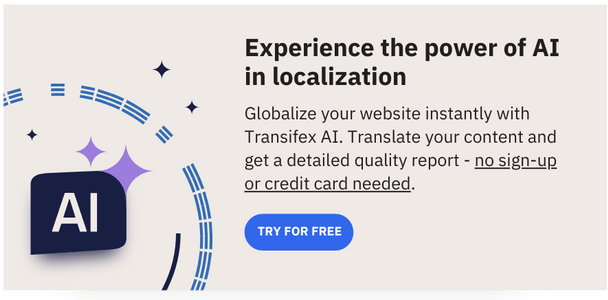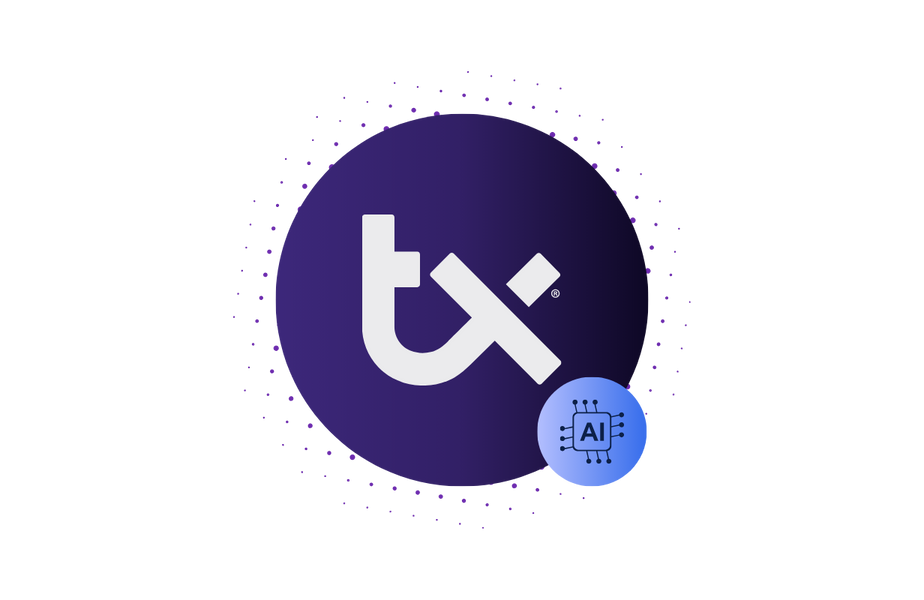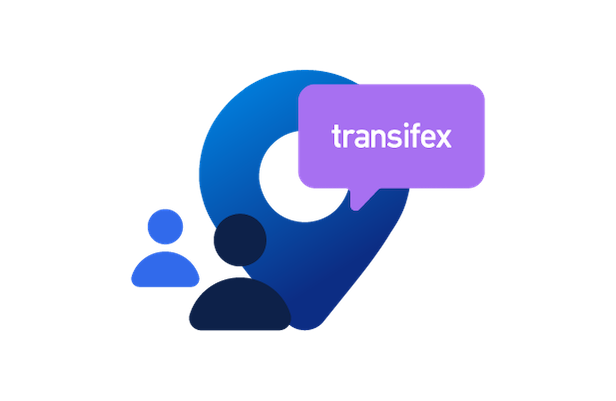Expanding your brand globally can be a challenging task. It can be difficult to know where to start and how to ensure your brand’s message resonates across multiple audiences. The answer lies in an international marketing strategy, which can help your business achieve global success.
In this article, we’ll explore what is international marketing and guide you on how to tap into global growth opportunities.
Keep reading to learn how to gain an international audience!
What is international marketing?
International marketing is the process of promoting and selling products or services to a global customer base. It involves tailoring offerings to meet the varied needs, preferences, and language differences of target audiences around the world.
International brands may adjust their messaging, product features, and distribution channels to match local practices. By doing so, they can effectively grow foreign operations, build global brand recognition, and achieve international marketing success.
International vs. local marketing
Unlike domestic marketing, an international marketing campaign caters to the unique needs, preferences, cultural nuances, and regulations of diverse international markets.
Here’s an overview of the differences between international and local marketing:
| International Marketing | Local Marketing | |
|---|---|---|
| Scope | Targets audiences across multiple countries and regions. | Focuses on a specific geographic area within a single country. |
| Languages | Often involves multiple languages and translation services. | Primarily uses the dominant language of the target market. |
| Culture | Requires deep understanding and adaptation to diverse cultural norms, values, and preferences. | Leverages familiarity with the local culture. |
| Regulations | Must comply with varying laws, trade restrictions, and regulations across different countries. | Operates within the legal framework of a single country. |
| Currency | May involve transactions in multiple currencies and requires consideration of exchange rates. | Uses a single currency. |
| Competition | Faces a broader range of competitors, both global and local. | Competition is primarily from other businesses within the local market. |
| Cost | Generally requires higher investment due to market research, translation, adaptation, and logistics. | Typically has lower costs compared to international marketing. |
The characteristics of international marketing
Characteristics of international marketing can include a wide range of different practices to meet the needs of global customers.
International marketing characteristics can include:
- It involves at least two different countries
- It needs to be flexible and adaptable
- Requires a high level of expertise, as it needs to adapt to different circumstances
- Faces uncontrollable variables, including political and cultural factors
- Requires unique strategies for every country
- Needs to abide by international restrictions and policies
- It has a high level of competition, as a business needs to stand out from foreign and local competitors
- Balances import and export to all countries it targets
- Requires long-term planning, just like other global expansion strategies, including transnational strategy
The Key Types of International Marketing Explained
When a business aims to expand to other countries, it typically takes the first steps of exporting and licensing among the various types of international marketing available.
So, let’s explore the different types of international marketing and what they include!
#1 Export
One of the main ways a business can expand internationally is by exporting its products and services to other countries. This type of international marketing is less risky than others and has less impact on the business’s human resources management. There are two ways businesses can export: directly or indirectly.
Direct exporting doesn’t require third-party involvement, as the company sells its products directly to intended customers. In indirect exporting, a business promotes its products or services in foreign countries with the help of international distributors and sales agents.
Ideal For: Companies looking to test the waters of international expansion with minimal risk and investment.
#2 Licensing
Another type of international marketing is licensing, an agreement between two enterprises. In this agreement, a company called a licensor allows a foreign firm to use its intellectual property (copyrights, patents, manufacturing processes, or trade names) for a specific period, getting royalties in return for granting this right.
Ideal For: Businesses with valuable intellectual property who want to expand into large markets without significant capital investment.
#3 Franchising
Franchising is similar to licensing, as a parent company allows a foreign firm to use its name to do business in a foreign country. However, in this case, the guidelines that the foreign firm has to follow are stricter.
Generally speaking, manufacturers commonly use licensing to expand globally, while service enterprises, like hotels and restaurants, use franchising. A strong brand that can be recognized globally is the key to a successful franchising strategy.
Ideal For: Service-oriented businesses with a strong brand and replicable business model.
#4 Joint Ventures
In a Joint Venture, two companies from different countries form a partnership, which is equally beneficial for both parties. One of the main characteristics of joint ventures is that the risk is shared between the two enterprises while both contribute assets.
While all the companies involved in a joint venture function independently, their collaboration can increase profits, eliminating risks.
Ideal For: Businesses seeking local market knowledge, shared risk, and access to new resources.
#5 Foreign Direct Investment (FDI)
In Foreign Direct Investment (FDI), a company purchases a fixed asset in a foreign country to manufacture a product or service abroad, intending to establish a lasting interest.
The difference between joint ventures and foreign direct investment is that in the latter, the foreign business fully owns the subsidiary and has total control over decision-making.
Ideal For: Large businesses seeking long-term control and significant involvement in a foreign market.
What are the benefits of international marketing?
A well-executed international marketing strategy has several benefits that can help businesses expand in global markets and increase their profits. Here are some of the advantages of international marketing:
- Offers new opportunities for companies to increase profits
- Companies reach a larger audience by implementing a well-planned localization strategy
- Helps businesses grow in industrial economies
- Offers businesses valuable foreign market insights from different markets around the world, enhancing their global marketing strategies
- Enhances the living standards of customers of the countries that participate in it
- Promotes international cooperation between businesses in different countries
- Helps businesses gain a competitive advantage in foreign markets
- Allows companies to captivate global audiences by promoting products and services globally
- Helps businesses build a global reputation, forming a world-recognizable brand identity
- Promotes cultural and social exchange
- Ensures companies make the best use of their resources at an international level
- Extends the lifecycle of products, offering the opportunity to businesses to introduce a product in a new foreign market, although it might have reached a decline stage in another
- Promotes innovation and customization
- Allows businesses to adapt to the ever-changing global market trends
What are the challenges of international marketing?
While multilingual marketing can bring numerous advantages to businesses, it also poses significant challenges. These can include:
- Cultural differences and norms misunderstanding
- Logistical challenges, like difficulties in coordinating activities in different time zones or shipping
- Difficulty in handling diverse laws and regulations across different countries
- Complexities in adapting to local preferences and adhering to cultural norms
- High levels of competition in certain markets
- Difficulty in managing diverse economic conditions
- Extra effort for a company to remain competitive
- Enhanced efforts for international SEO performance
Examples of companies implementing an international marketing strategy
Businesses worldwide have adopted international branding strategies that enable them to establish a strong presence in foreign markets. By investing in effective multilingual campaigns, they successfully expand their reach and tap into new markets.
Here are a few great examples of great international marketing strategies in action:
#1 Airbnb
Airbnb, a platform that connects hosts with guests worldwide, invests in international marketing strategies to grow its footing despite challenges like international lockdowns during the pandemic.
Using videos and photos of real guests, it created a campaign based on user-generated content, harnessing the power of Social Media across different platforms and regions to engage with global audiences.
#2 Red Bull
The famous Austrian energy drink company implements a multilingual campaign, organizing extreme sports events in several countries worldwide.
Also, the design of its cans, shape, logo, and colors make Red Bull recognizable globally, helping it stand out from the competition.
#3 Domino’s
One of the secrets behind Domino’s successful international marketing strategy is that it has localized its menu to match the tastes and preferences of customers in different countries.
More specifically, it offers different pizza toppings from market to market, proving that it understands every country’s food culture and aligns with it.
#4 World Wildlife Fund (WWF)
World Wildlife Fund (WWF) is a non-profit organization with a global presence and offices in almost every part of the world.
With its Earth Hour Initiative, WWF aims to raise awareness about climate change and achieve brand recognition, inviting people around the globe to participate by turning their lights off for an hour.
How to implement an international marketing strategy
Now that you know everything about international marketing, you may want to implement it to expand in the global market. So, here are some steps you can follow to craft a winning international marketing strategy:
- Conduct market research to understand local audiences and trends
- Find and analyze your competitors using SWOT analysis
- Understand your target audience, so that you can find the best ways to engage with it
- Craft a mission statement that aligns with your brand’s values and goals
- Create a localized marketing strategy that involves website localization and SEO optimization in multiple languages, using a tool like Transifex AI
- Establish a local presence in foreign markets
- Stay up to date with local trends
- Invest in driving customer engagement and loyalty
- Reach your target audience on different digital platforms
- Collaborate with international marketers to create effective marketing campaigns
International marketing enables global expansion, allowing companies to target customers in new markets, reach a wider audience, increase profits, and create a globally recognizable brand.
At Transifex, we help you create a successful international business and reach global audiences by offering human-quality content!
What is the key to successful international marketing?
The key to successful international marketing lies in a combination of in-depth market understanding and strategic localization. Businesses must thoroughly research and analyze the cultural nuances, linguistic complexities, consumer preferences, and regulatory framework of each target market. This knowledge is the backbone of crafting campaigns that resonate with diverse audiences.
For seamless localization, partnering with the right technology is essential. This is where Transifex excels, offering a range of powerful features to streamline and optimize the process:
- Consistent Brand Voice: Transifex helps you maintain a consistent brand identity across markets. It acts as a centralized hub with glossaries, style guides, and brand-specific translations powered by AI to ensure your unique brand voice shines through in every language.
- Easily Keep Your Content Updated: Transifex integrates with popular CMS platforms, development tools (WordPress, Hubspot, Contentful, Figma), and project management systems. Leverage real-time synchronization of localized content and eliminate repetitive manual work.
- Scalable Translation: Transifex AI and popular Machine Translation tools can minimize translation time, enabling you to reach new markets faster and at a fraction of the standard translation cost.
- Efficient Collaboration: Intuitive dashboards, automated notifications, and collaborative tools enhance cross-functional teamwork, even across global teams. With transparent and clear processes, you can launch your international campaigns faster than ever before.
- Quality Assurance: Automated quality checks powered by AI help maintain high standards while minimizing errors. Transifex helps you tackle the bottleneck of QA both in terms of time and costs with AI speed.
- Cost-Effectiveness: Transifex’s AI-powered hub is designed to refine your entire workflow. It can lower your localization costs by up to 50% with AI capabilities and features like Translation memory, it ensures you never have to pay twice for the same translation.
By combining deep market insights with Transifex’s robust localization capabilities, businesses can create successful global marketing campaigns that authentically connect with audiences worldwide.
Ready to take your international marketing strategy to the next level?
Transifex’s AI-powered localization hub helps you create and deliver consistent, culturally adapted content across any language and location.
Sign up for a free trial today and engage the world with the power of AI.













